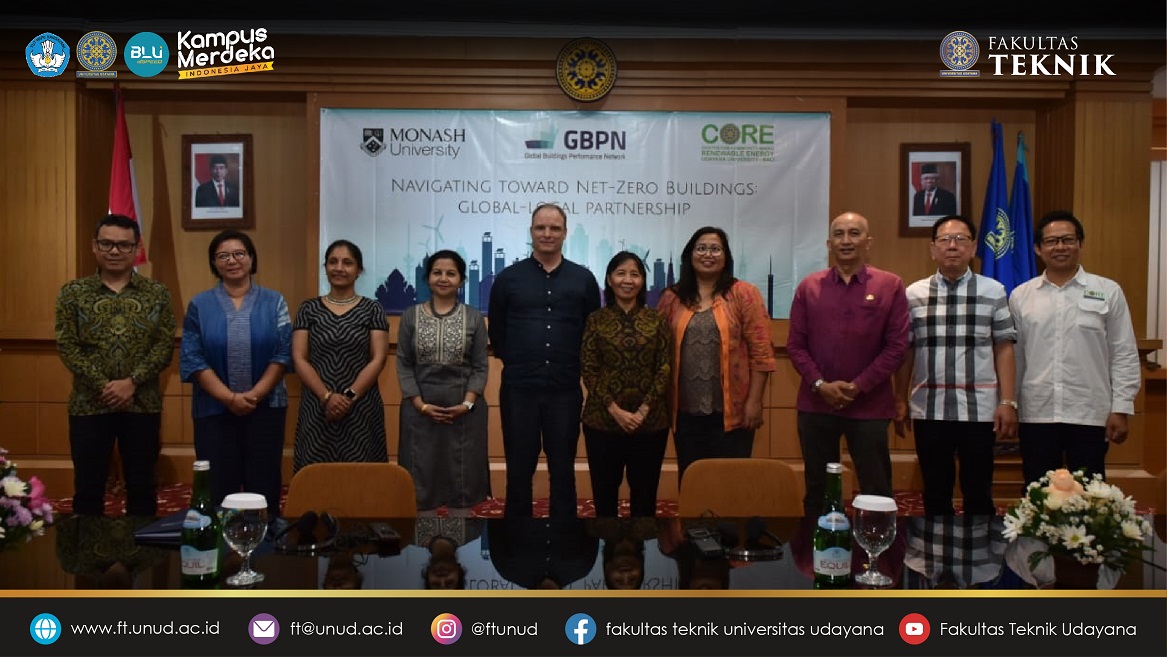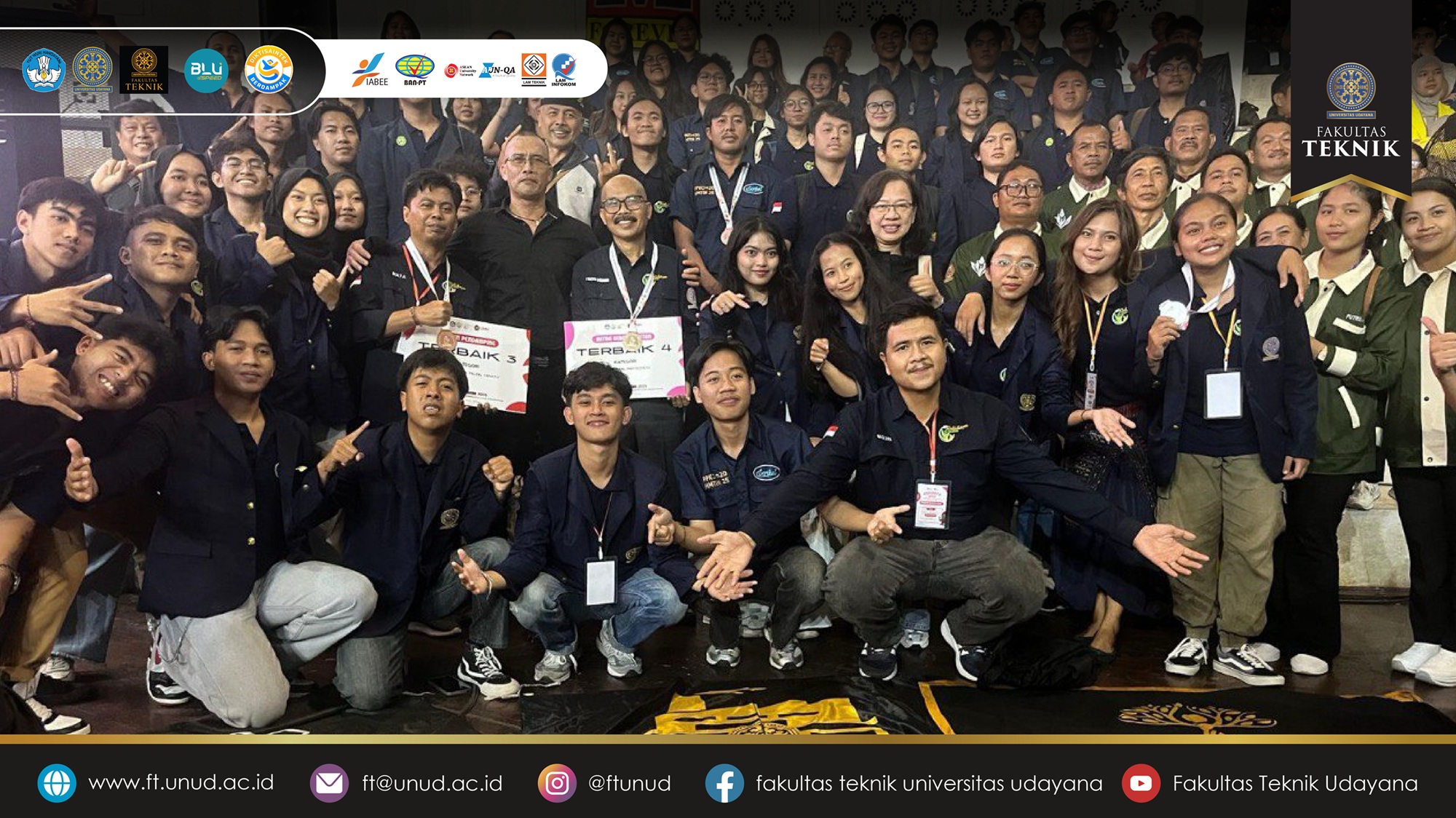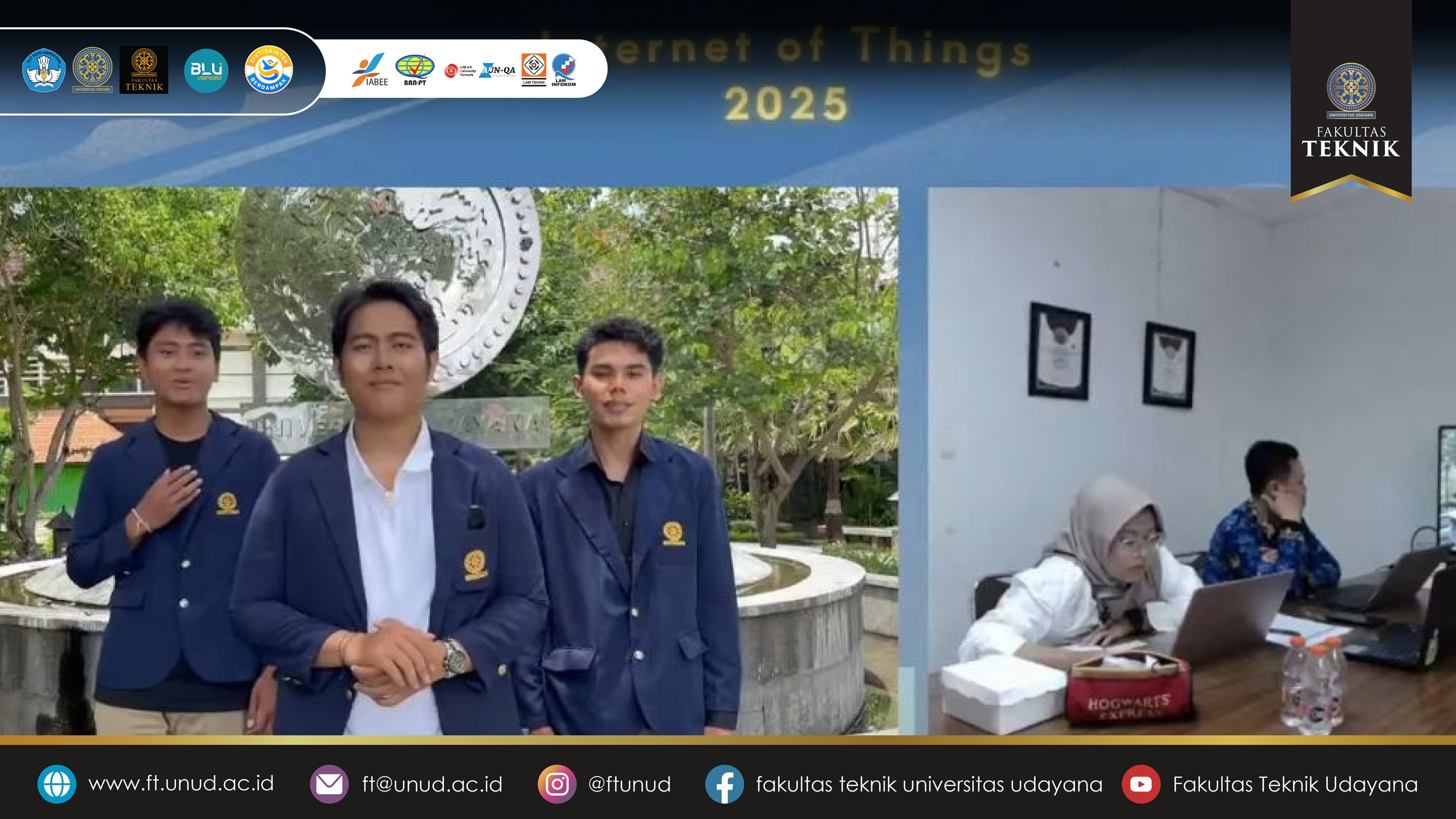International Panel Discussion Navigating toward net-zero buildings: global local partnerships
The Indonesian government has set a target to achieve net-zero emissions (NZE) by 2060. This certainly requires synergy between all parties, both national and international, to collaboratively achieve this goal. The Provincial Government of Bali itself wants to achieve net-zero emissions by 2045, faster than the national target. Of course this requires even harder work to make it happen.
In order to support the achievement of the national target and the target for the province of Bali, the Faculty of Engineering, Udayana University in collaboration with the Center for Community-based Renewable Energy (CORE) LPPM Udayana University and the Global Building Performance Network (GBPN) France, held discussions to strengthen networks in efforts to mitigate warming. from the building sector by discussing various aspects related to low carbon building development and also listening to best practices and lessons learned in the management of the building sector in Australia, India, Indonesia and Singapore.
Dean of the Faculty of Engineering, Udayana University Prof. Linawati gave the opening remarks of the panel discussion after previously starting with remarks from the Country Manager of GBPN Indonesia, Dr. Ery Wijaya and representatives of Monash University Indonesia. In his remarks, Prof. Linawati appreciates the collaboration that has been carried out between the Electrical Engineering Study Program, Electrical Engineering Masters Study Program, CORE Udayana, and GBPN to support the Bali Provincial government in preparing Technical Guidelines for Green Buildings in Bali. The Dean of Engineering also conveyed the need for samples of green buildings at Unud so that they could be used as living laboratories as a means of research and development of green buildings that specifically reflect building needs/characteristics/specifications for Bali.
The panel discussion was hosted by Dr. Peter Graham who is the Executive Director of GBPN and also Associate Prof. (Art Design and Architecture) Monash University Australia, with a panel of experts consisting of Ir. Ida Bagus Setiawan, ST, MSi, Head of the Bali Manpower and ESDM Office, I Nyoman Satya Kumara, PhD from CORE Udayana, GBPN Boards namely Ms Jane Henley (Australia), Dr. Lee Siew Eang (National University Singapore), Ms. Mili Majumdar (India), and Dr. Sunita Purushottam (India). A presentation session was also held by two students of the Electrical Engineering Study Program, Faculty of Engineering, Udayana University, namely Aditya Darmawan and Bayu Natapathy, who presented the results of the Capstone Project research entitled the application of green buildings within the Faculty of Engineering, Udayana University.
The discussion was held in a hybrid manner with online participants coming from the Ministry of PUPR Jakarta, the Ministry of Energy and Mineral Resources Jakarta, and participants from Australia. Offline participants came from GBPN members from Australia, India and Singapore, the PUPR Office for the Province of Bali, the Office for Employment and ESDM for the Province of Bali, the Divinkom & Statistics for the Province of Bali, the DPMPTSP for the Province of Bali, the DLHK for the Province of Bali, the Bappeda for the Province of Bali, the Legal Bureau for the Province of Bali, the Group Bali Province Development Expert, Public Works and Housing Service for Denpasar City, PUPS Office for Gianyar Regency, DPMPTSP for Denpasar City, DPMPTSP for Gianyar Regency, TPA and TPT for Denpasar City and Gianyar Regency, IAI Bali, GBCI Bali, GAPENSI Bali, ACE Bali, academics from Warmadewa University, Undiknas University, and the academic community of the Faculty of Engineering, Udayana University.
The discussion ended with closing remarks by the Head of CORE Udayana, Prof. Giriantari who expressed his appreciation for the support of all parties for the implementation of this panel discussion activity and expressed his hope that efforts to mitigate global warming from the building sector could be further strengthened so that together with the energy sector and the transportation sector could support the Bali government in developing plans to realize Bali's net-zero emission 2045 .




UDAYANA UNIVERSITY